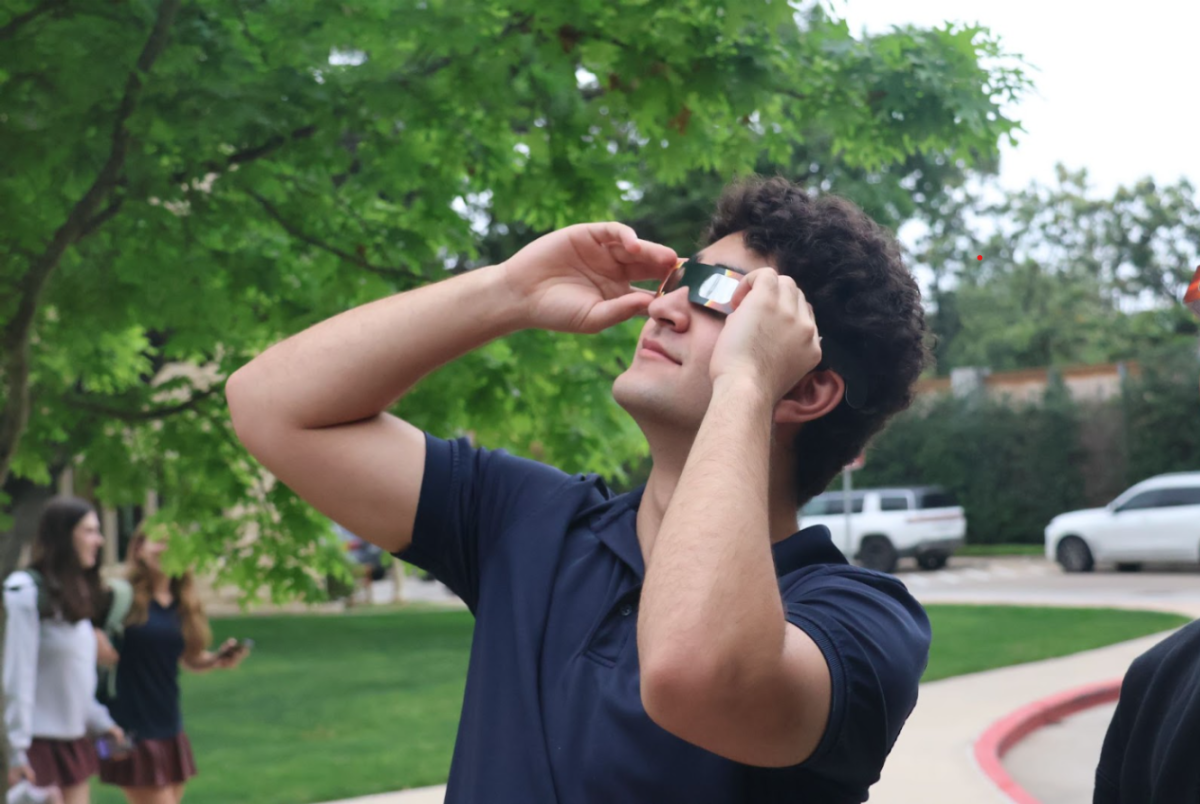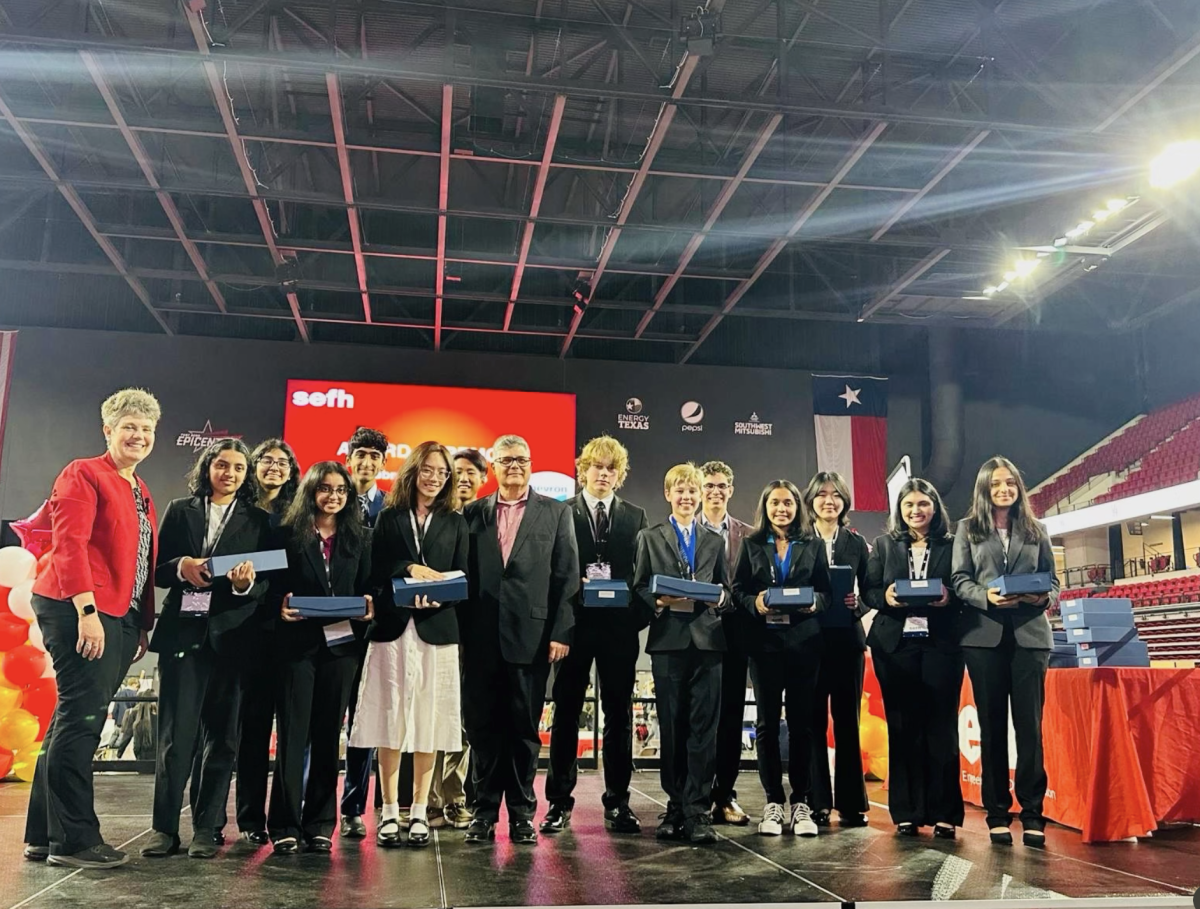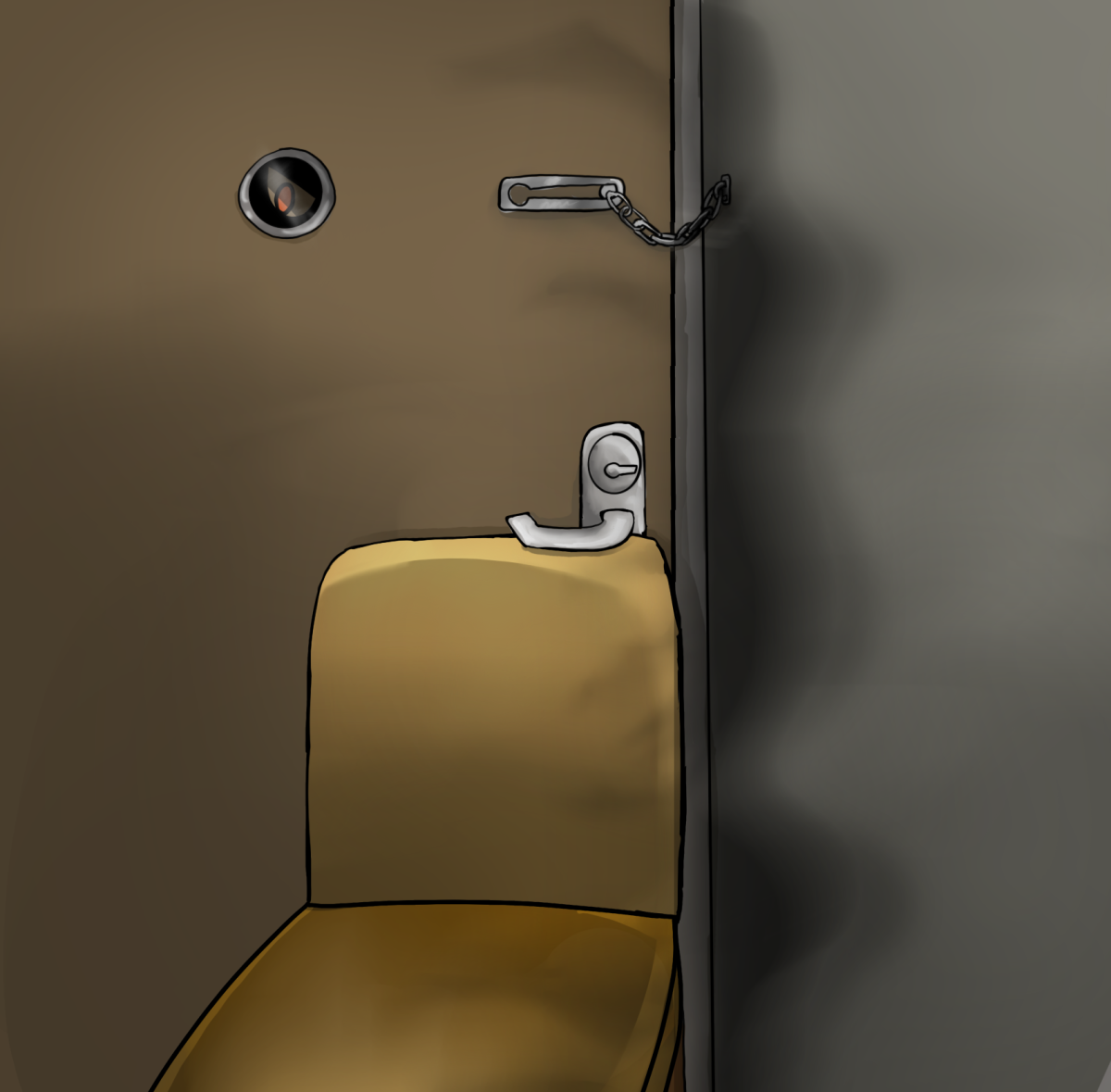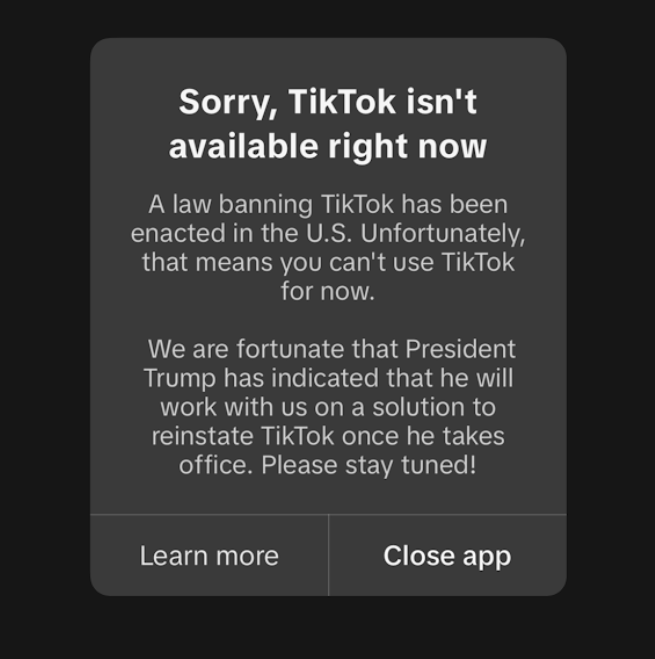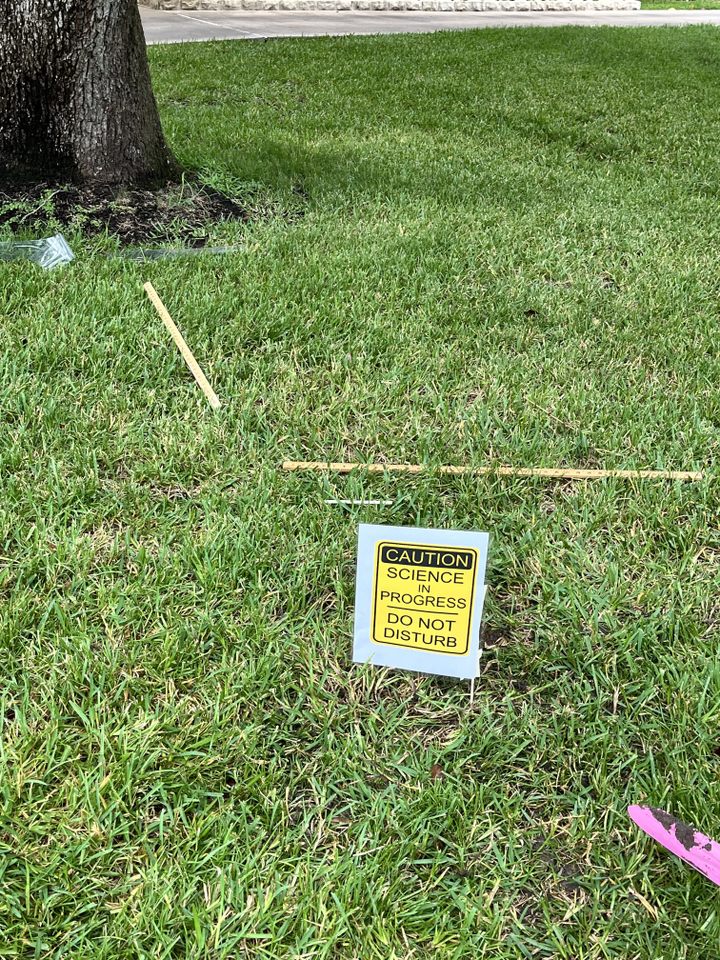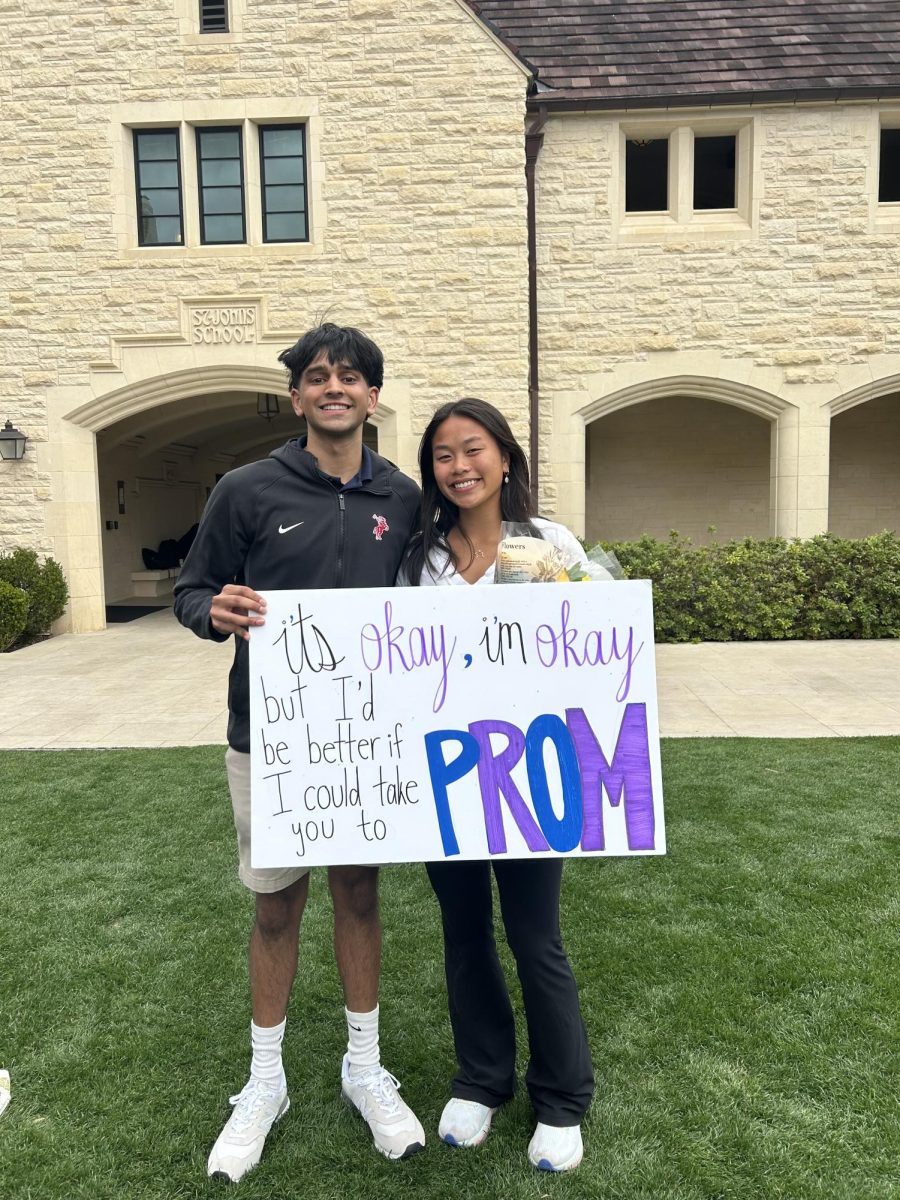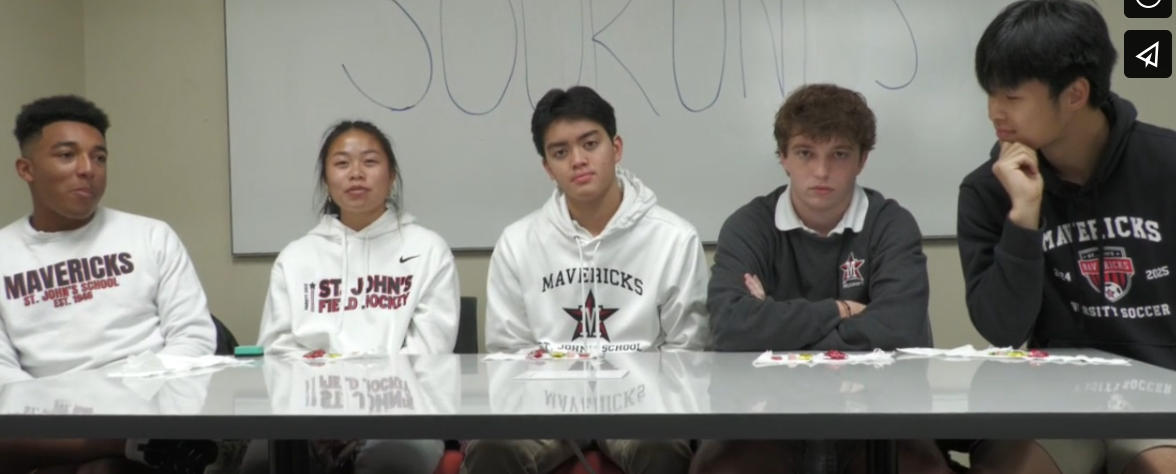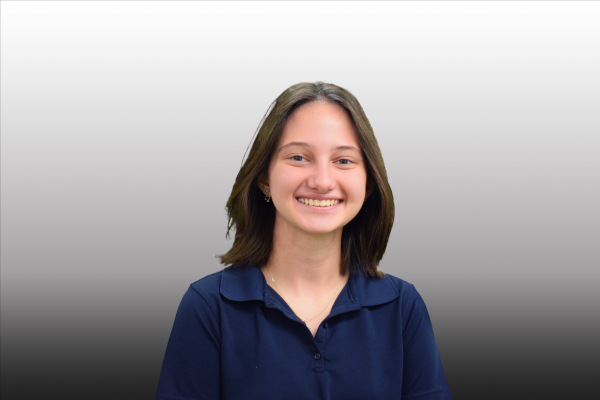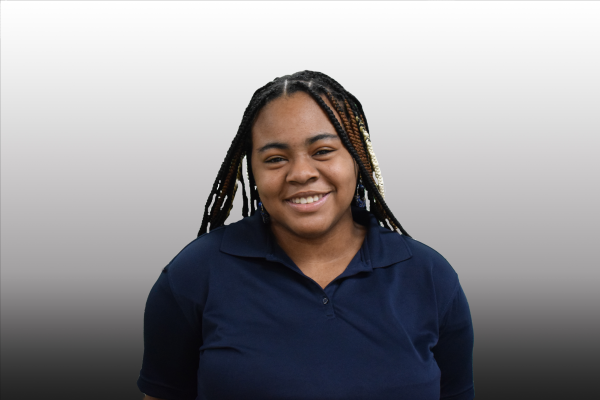Junior Talia Musher traveled to Wimberly, Texas to experience complete totality. A few years ago, Musher’s mother, who Talia says has a “weird obsession” with eclipses, had organized a retreat to see this one at her husband’s childhood summer camp, Camp Young Judea. Though it was cloudy, the retreat’s 100 guests watched from hammocks and lawn chairs as the sky went dark at 1:34 p.m. Crickets chirped, and when the sun came out again, a family of deer ran past the viewing party— “almost as if it were morning.”
Freshman Ziyad Gilani also missed school to see the eclipse, driving to a family friend’s ranch in Uvalde, Texas.
“It’s been pretty crazy,” Gilani said before the eclipse. “The only thing now is hoping the weather holds up.”
Astronomy Club president Bethany Owens watched the eclipse at her family’s ranch in Fredericksburg, Texas.
“It was really cool, even though it was cloudy and kind of messed up our view,” Owens said.
Students that stayed in school flocked to the Great Lawn and Quad to catch a glimpse of the major solar event, many equipped with ISO-approved eclipse glasses issued by the School. While the path of totality did not include Houston, the eclipse peaked at 94 percent totality. All B carrier science classes were let out to watch, but outside the science department, the decision to excuse class is left up to individual teachers. French teacher Shelley Stein (’88), whose students had a test during B, decided to only give half of the assessment so students could have time to watch the eclipse.
“I thought long and hard,” Stein said. “I wanted to surprise them.”
Upper school students waited for over twenty minutes after the bell to see the eclipse. The event proved anticlimactic for some—cloud coverage made the sun mostly invisible—but most students enjoyed the opportunity.
“It was so cool to see it emerge from the clouds after all that waiting,” junior Genna Larsen said.
Astrology buffs say that the cosmic alignment may mean good news for Tauruses, respect for Capricorns and career improvements for Libras, but will bring negative effects for most other signs. Pets may also act a little loopy for the rest of the day, as the simulated shift into night can throw off animals’ internal clocks.
Though partial eclipses are less rare—we experienced one in October—the next coast-to-coast eclipse will not come until Aug. 12, 2045. We’ll do the math for you—current high school students will be in their late thirties.



